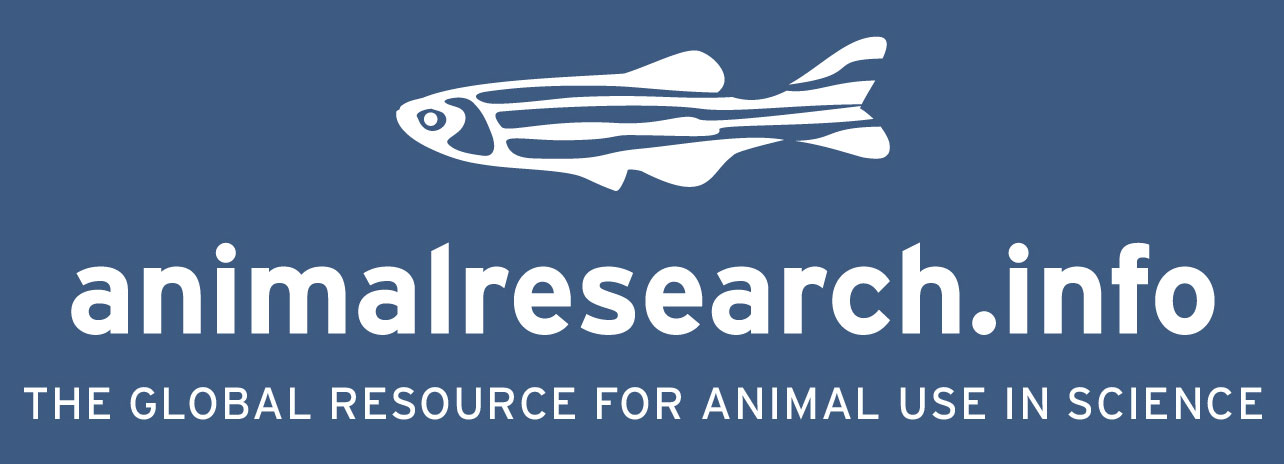Covid-19
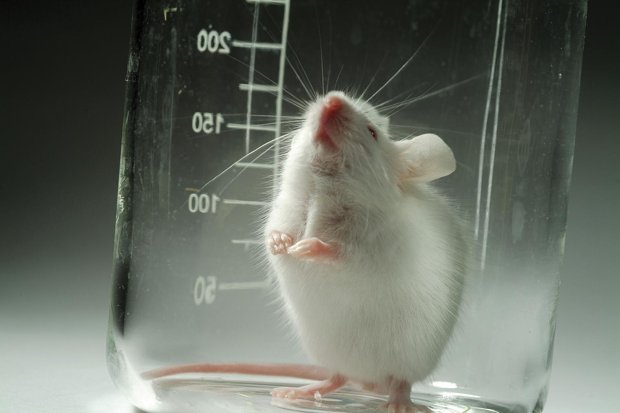
12/06/20 Genetically engineered lab mice to boost COVID-19 vaccine and research: Experts
Studies have shown that the 2019 novel coronavirus attaches to a protein called angiotensin-converting enzyme 2 (ACE2) in the respiratory tract of patients. While laboratory tests attempt to replicate this in mice, a problem arises because the genetic makeup of the animal's ACE2 is different from humans. This turns into a roadblock for researchers hoping to develop a treatment or vaccine for COVID-19. It is important to thoroughly determine its safety before a drug can be approved for human trials, which is why a mouse model was developed to speed up the process.
It appears that a team of experts from the Washington University School of Medicine in St. Louis, Missouri have created a mouse model of COVID-19. It should give scientists a viable testing medium for medications that can potentially be effective against the disease.
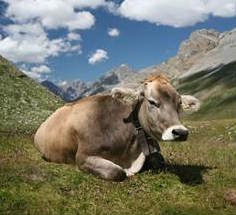
05/06/20 This cow’s antibodies could be the newest weapon against COVID-19
The latest recruits in the fight against COVID-19 are munching hay in a South Dakota barn. A biotech company has coaxed genetically modified cows to pump out human antibodies that subdue SARS-CoV-2, the pathogen causing the deadly disease, and it plans to start clinical trials of them this summer.

02/06/20 Monkeys, ferrets offer needed clues in COVID-19 vaccine race
The global race for a COVID-19 vaccine boils down to some critical questions: How much must the shots rev up someone’s immune system to really work? And could revving it the wrong way cause harm?
Even as companies recruit tens of thousands of people for larger vaccine studies this summer, behind the scenes scientists still are testing ferrets, monkeys and other animals in hopes of clues to those basic questions — steps that in a pre-pandemic era would have been finished first.
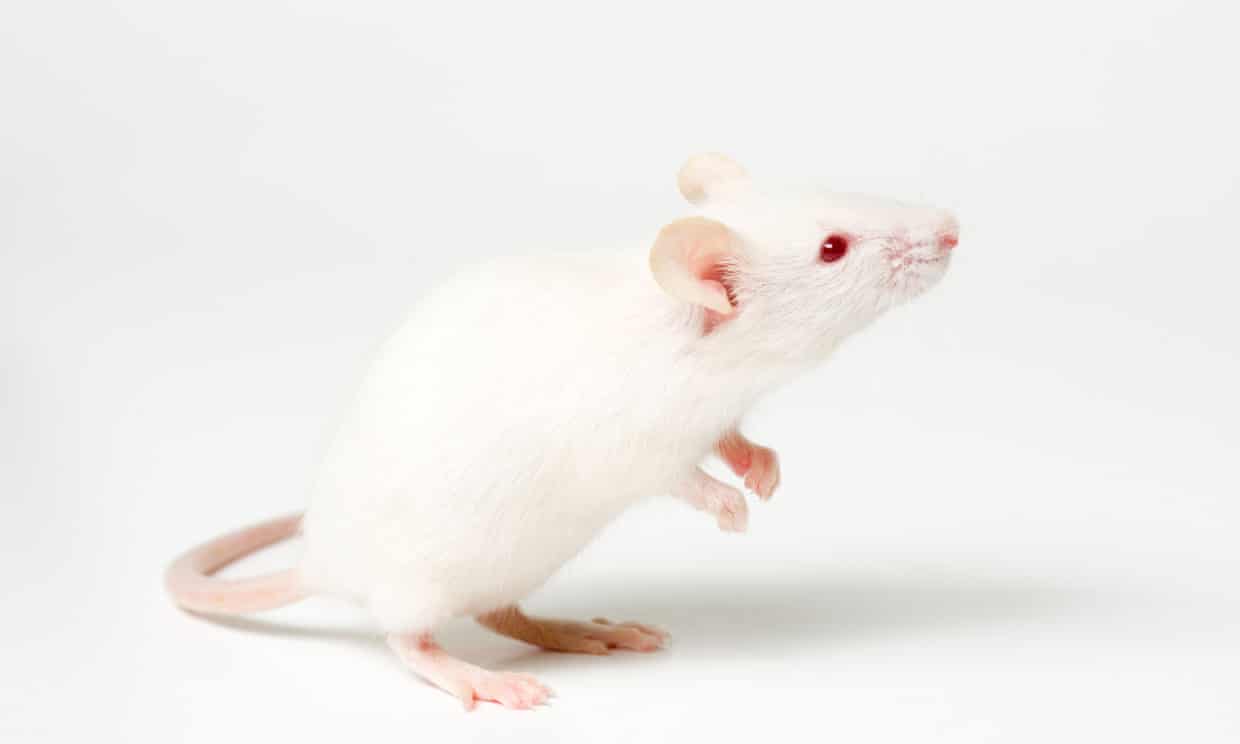
27/05/20 A Mouse Model of SARS-CoV-2 Infection and Pathogenesis
Since December 2019, a novel coronavirus SARS-CoV-2 has emerged and rapidly spread throughout the world, resulting in a global public health emergency. The lack of vaccine and antivirals has brought an urgent need for an animal model. Human angiotensin-converting enzyme II (ACE2) has been identified as a functional receptor for SARS-CoV-2. In this study, we generated a mouse model expressing human ACE2 (hACE2) by using CRISPR/Cas9 knockin technology. In comparison with wild-type C57BL/6 mice, both young and aged hACE2 mice sustained high viral loads in lung, trachea, and brain upon intranasal infection. Although fatalities were not observed, interstitial pneumonia and elevated cytokines were seen in SARS-CoV-2 infected-aged hACE2 mice. Interestingly, intragastric inoculation of SARS-CoV-2 was seen to cause productive infection and lead to pulmonary pathological changes in hACE2 mice. Overall, this animal model described here provides a useful tool for studying SARS-CoV-2 transmission and pathogenesis and evaluating COVID-19 vaccines and therapeutics.

05/04/20 Australia to Start COVID-19 Vaccine Animal Tests
Government researchers in Australia have started animal tests of two potential COVID-19 vaccines. However, experts caution that even if they prove successful, manufacturers will be unlikely to mass-produce a vaccine until next year.
The vaccines have been made by Oxford University in Britain and in the United States by Inovio Pharmaceuticals.
The World Health Organization has said they can be tested on animals, which is a fundamental step in the search for a COVID-19 vaccine for humans.
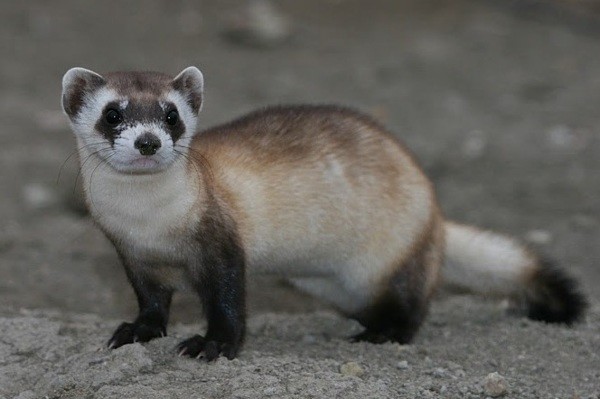
02/04/20 CSIRO tests potential Covid-19 vaccines on ferrets
Australian scientists from the CSIRO have been trusted to determine if the two vaccine candidates are effective and safe enough to test on humans.
If all goes well with the ferrets, phase-one human trials could begin later this month or in early June. But even then, a vaccine won’t be widely available until the end of the year at the earliest.
https://indaily.com.au/news/2020/04/02/csiro-tests-potential-covid-19-vaccines-on-ferrets/
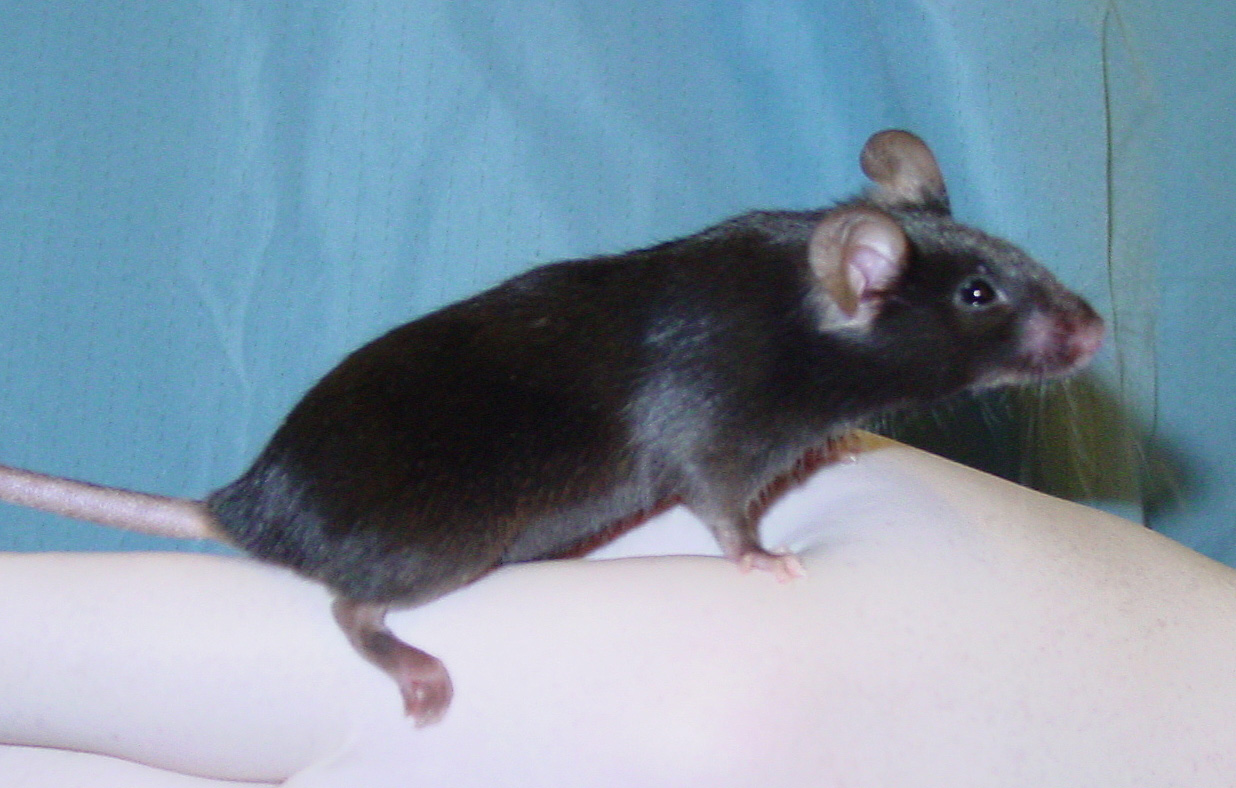
02/04/20 Coronavirus: Australian scientists begin tests of potential vaccines
Scientists in Australia have begun testing two potential coronavirus vaccines in "milestone" lab trials. The vaccines, made by Oxford University and US company Inovio Pharmaceutical, have been cleared for animal testing by the World Health Organization.
Australia's national science agency will assess if the vaccines work, and if they would be safe for humans. The first human trial took place in the US last month, but skipped a stage of animal testing.
https://www.bbc.com/news/world-australia-52130402
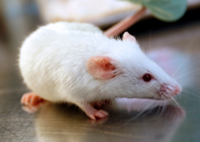
02/04/20 COVID-19 vaccine candidate shows promise in mice
Scientists have announced a potential vaccine against SARS-CoV-2, the new coronavirus causing the COVID-19 pandemic. When tested in mice, the vaccine -- delivered through a fingertip-sized patch -- produces antibodies specific to SARS-CoV-2 at quantities thought to be sufficient for neutralizing the virus.
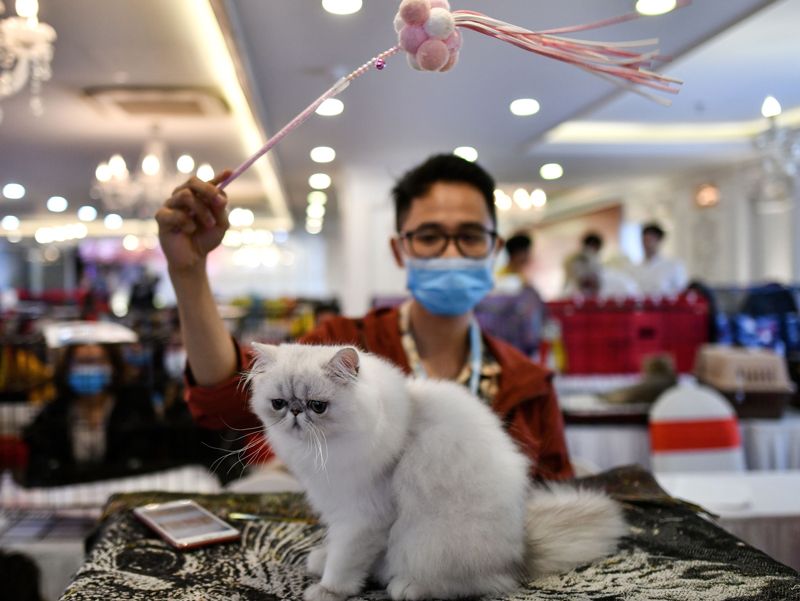
01/04/20 Coronavirus can infect cats — dogs, not so much
Cats can be infected with the coronavirus that causes COVID-19, and can spread it to other cats, but dogs are not really susceptible to the infection, say researchers in China. The team, at Harbin Veterinary Research Institute, also concludes that chickens, pigs and ducks are not likely to catch the virus.
Other scientists say the findings are interesting, but cat owners should not be alarmed just yet. The results are based on lab experiments in which a small number of animals were deliberately given high doses of the virus, SARS-CoV-2, and do not represent real-life interactions between people and their pets, says virologist Linda Saif at the Ohio State University in Wooster. There is no direct evidence that the infected cats secreted enough coronavirus to pass it on to people, she says.
https://www.nature.com/articles/d41586-020-00984-8
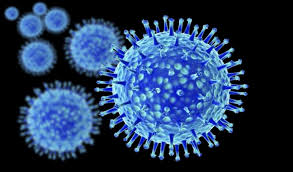
01/04/20 Cats can get the new coronavirus, but no evidence that they spread it to humans
Cats can be infected with the new coronavirus, SARS-CoV-2, and can pass it on to other cats, according to a non–peer-reviewed study published on the bioRxiv preprint server yesterday. But experts caution the work was done on a small number of lab animals, which were infected with high doses of the virus. None of the cats showed COVID-19 symptoms, and there is no evidence that felines could infect people with the virus, Nature reports. Research during the 2003 outbreak of severe acute respiratory syndrome (a coronavirus relative of SARS-CoV-2), showed that cats could become infected with that virus, but they did not appear to play a role in spreading the disease. The U.S. Centers for Disease Control and Prevention says right now there is no evidence that cats or other pets can spread COVID-19.
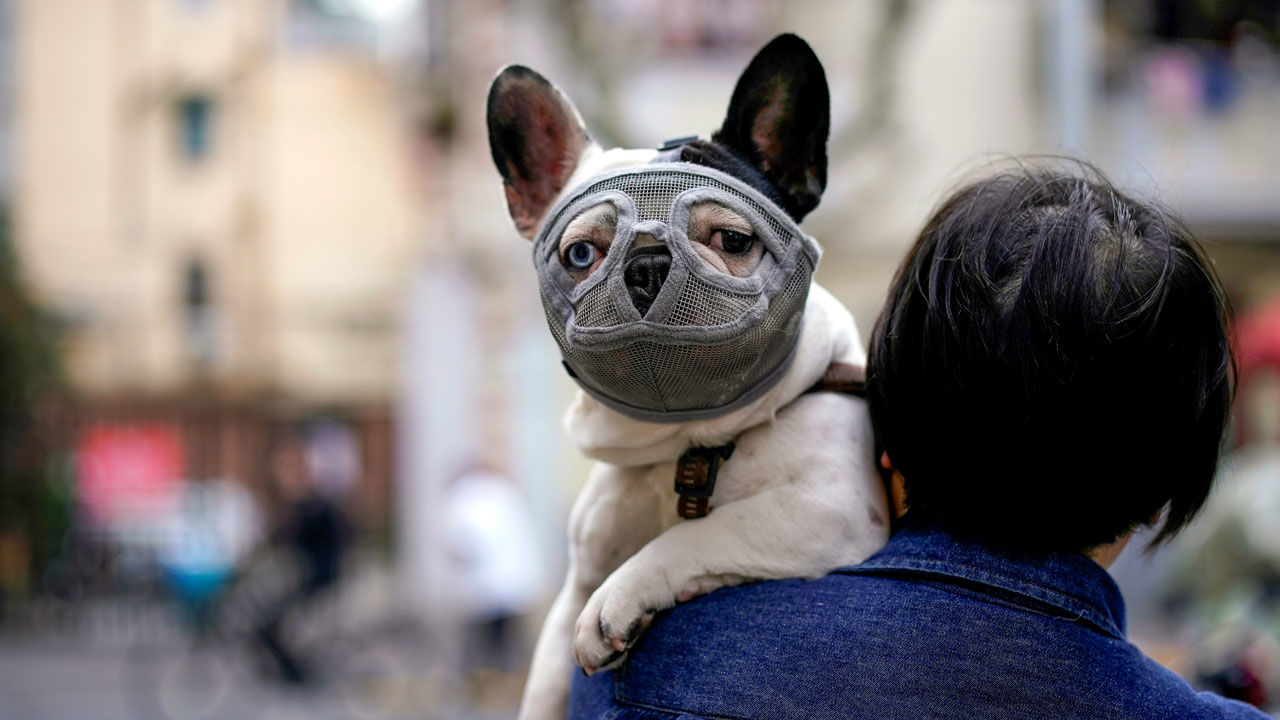
31/03/20 Should pets be tested for coronavirus?
Experts, including those at the U.S. Centers for Disease Control and Prevention (CDC), continue to emphasize that dogs and cats pose little risk to people. “CDC does not have evidence that pets can spread COVID-19, and there’s no reason to think pets might be a source of infection based on the information we have at this time,” Casey Barton Behravesh, director of the agency’s One Health Office in the National Center for Emerging and Zoonotic Infectious Diseases, tells Science.
Still, veterinarians want more information. Though human tests might work on animals, they are in short supply—and veterinarians prefer species-specific tests, anyway. Several labs have developed a SARS-CoV-2 test for pets, but none has begun to broadly administer it. The U.S. Department of Agriculture (USDA) has advised against it, and many experts are concerned about spreading unwarranted fear—especially amid reports that some owners have begun to abandon their pets.
25/03/20 The Jackson Laboratory is delivering a unique transgenic mouse model to the world’s research community
Scientists depend on animal models for the development and testing of safe and effective vaccines as well as antiviral and other therapeutic strategies. However, standard inbred strains of mice are not susceptible to COVID-19 infection, says Cat Lutz, Ph.D., senior director of the JAX mouse repository and in vivo pharmacology. “There's a big enough difference between the ACE-2 receptor in mice versus the ACE-2 receptor in humans,” she explains. This means it’s necessary to genetically engineer a mouse model that's capable of being infected.
Fortunately, that engineering work was already done. A 2002 outbreak of a related coronavirus, known as severe acute respiratory syndrome (SARS), led many in the research community to realize that “this is probably not going to be the last time we’re going to be faced with a coronavirus infection that is going to be pandemic within the population,” Lutz says. In 2007 Stanley Perlman and Paul McCray of the University of Iowa developed the K18-hACE2 mouse, which carries the hACE2 (human angiotensin I converting enzyme 2) gene; this is the gene that encodes the receptor that the COVID-19 binds to, infecting cells and causing illness.
JAX has a special role in maintaining and distributing genetically defined mouse models to the worldwide scientific community. When the COVID-19 crisis arose, it became clear that there would be high and immediate demand for the mouse model.
https://www.jax.org/news-and-insights/2020/march/expediting-covid-19-research
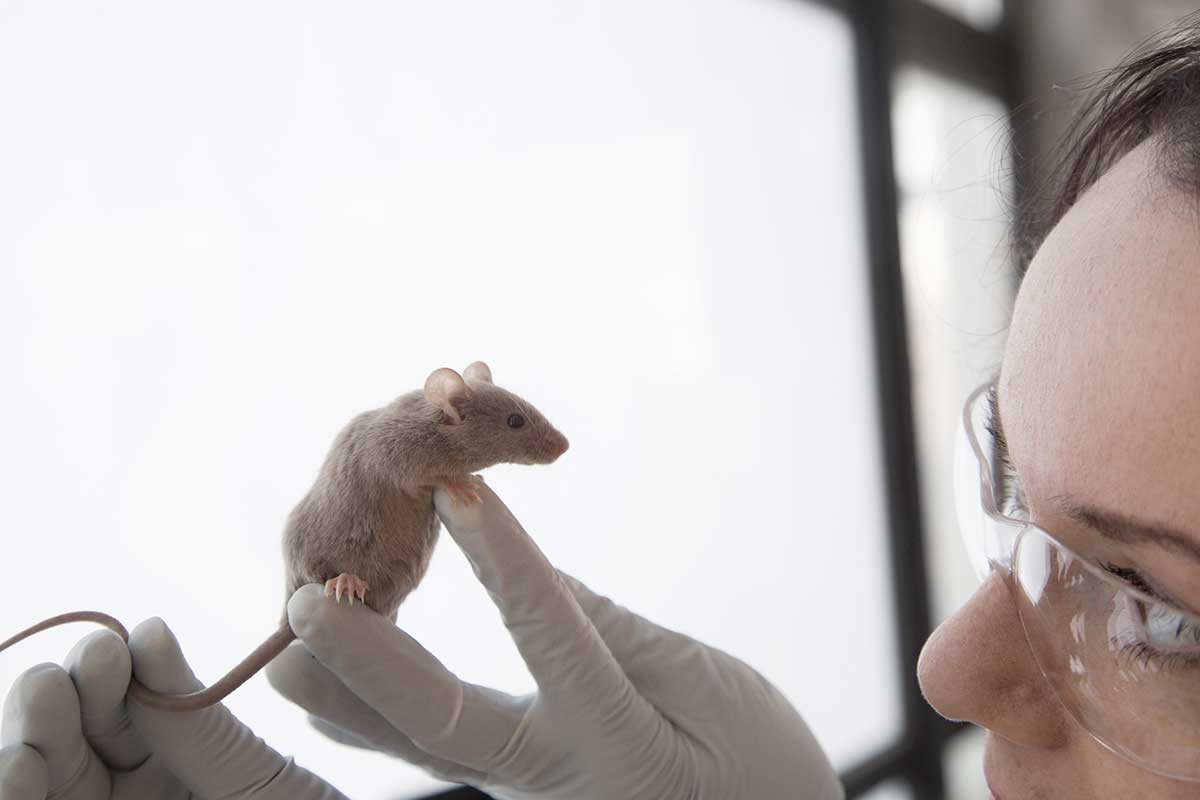
24/03/20 The US is fast-tracking a coronavirus vaccine, but bypassing safety standards may not be worth the cost
Testing a substance on humans that has received a minimal assessment of its safety poses potential risks. It could cause unexpected effects in the study participants, including severe illness and even death.
It’s also possible that an untested vaccine could even accelerate or enhance the effects of the virus instead of blocking them.

20/03/20 U of S lab develops animal model for COVID vaccine testing
The University of Saskatchewan’s Vaccine and Infectious Disease Organization-International Vaccine Centre (VIDO-InterVac) is the first Canadian lab to develop an animal model for COVID-19 vaccine testing.
Researchers have determined, through genome analysis, that ferrets are the best species for creating an animal model, where vaccinated animals are protected and non-vaccinated animals come down with the disease, said VIDO director and CEO Dr. Volker Gerdts.
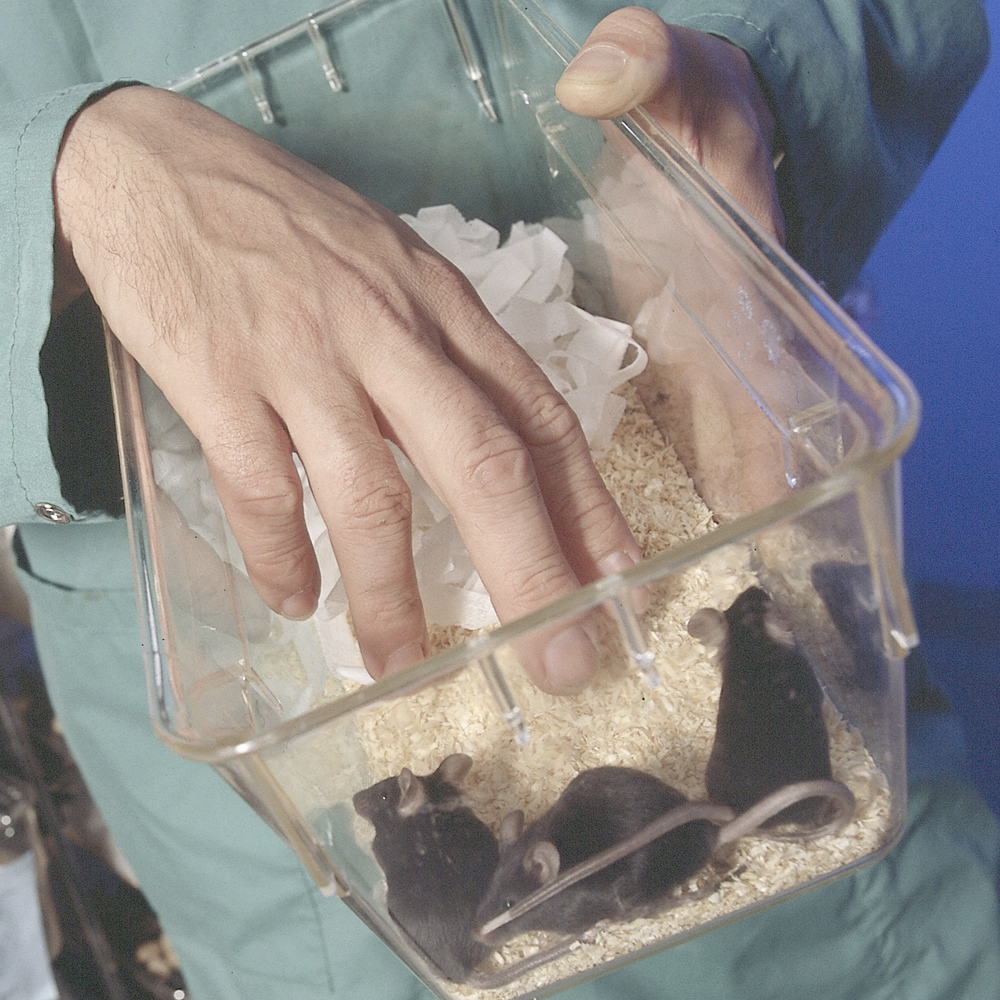
20/03/20 US Scientists 'Fast-Track' Coronavirus Vaccine By Skipping Animal Testing Stage
US Researchers are ditching the conventional animal experiment stage and going straight to human trials in a race to find a coronavirus vaccine, according to reports.
Normally, vaccines are first tested on lab animals, in an attempt to show they are 'safe' before human volunteers are potentially put at risk. But in a bid to save time - the traditional vaccine timeline is 15 to 20 years - the first human trial of a coronavirus vaccine has started in the US.
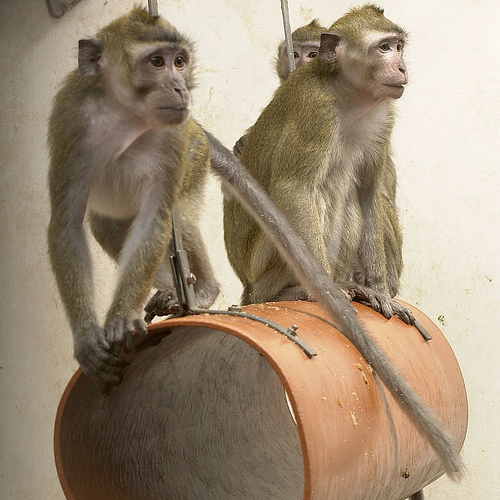
19/03/20 US Primate Centers Work to Protect Animals from COVID-19
Rhesus macaques can be infected with SARS-CoV-2, leading primate center scientists to try to prevent outbreaks in their colonies, especially as experiments on coronavirus start.
Like humans, monkeys are vulnerable to the virus behind the COVID-19 pandemic, although their symptoms are not entirely the same. This has opened up opportunities to study SARS-CoV-2, but has also meant facilities need to institute extensive precautions to prevent unintended contagion, particularly now as the researchers plan nonhuman primate experiments to aid in the development of coronavirus treatments and vaccines.
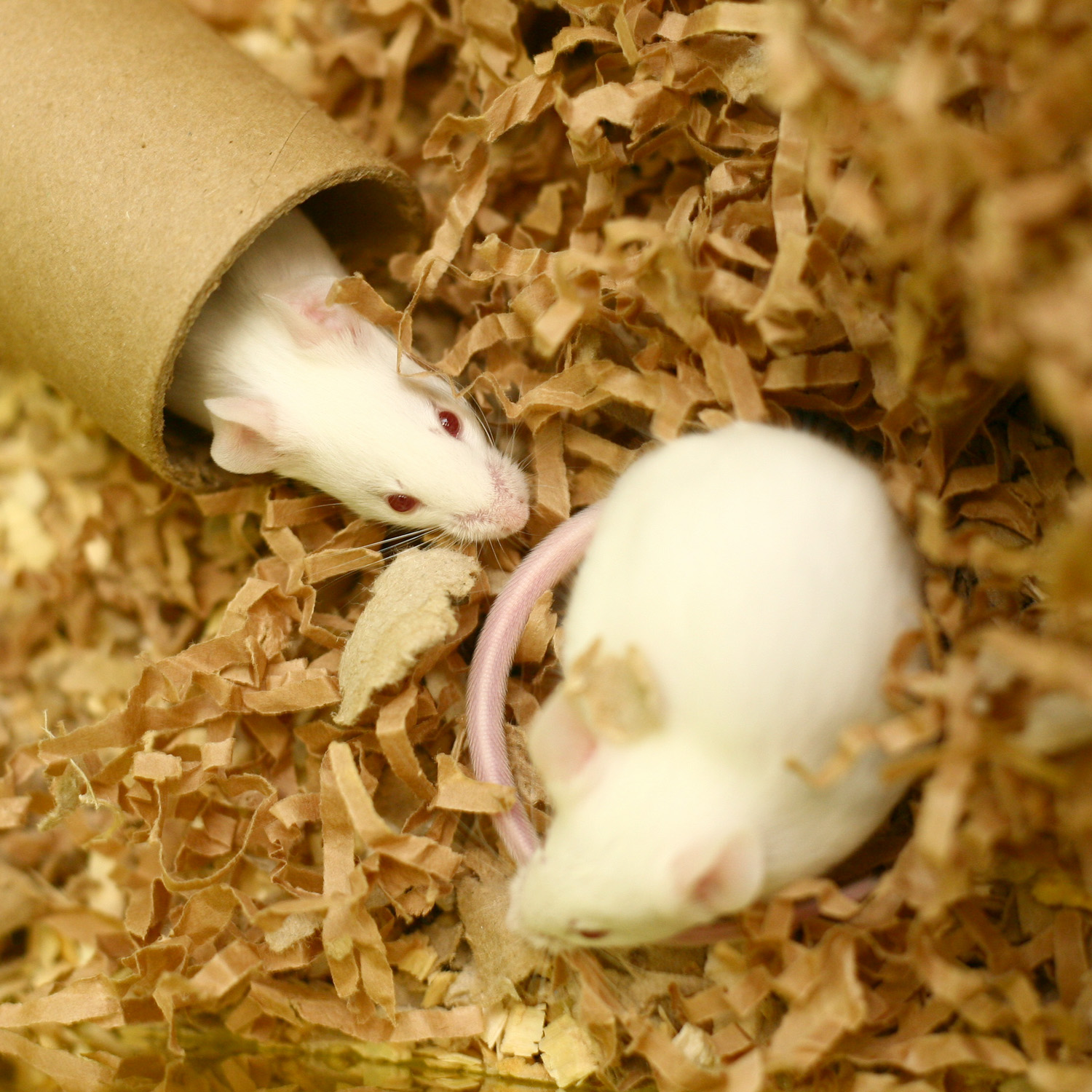
16/03/20 Vaccine Skips Important Animal Testing Phase, Straight To Human Trials
It's a risky gamble that will save thousands of lives if it pans out but might risk the health of its brave volunteers if it doesn't. The gamble also doesn't seem to conform to accepted medical ethics.
The urgent need to get into production a vaccine against the severe acute respiratory syndrome coronavirus 2 (SARS-CoV-2) that causes COVID-19 has convinced doctors to proceed to human trials of this candidate vaccine without first completing animal trials, as is the usual procedure in multi-step clinical trials.
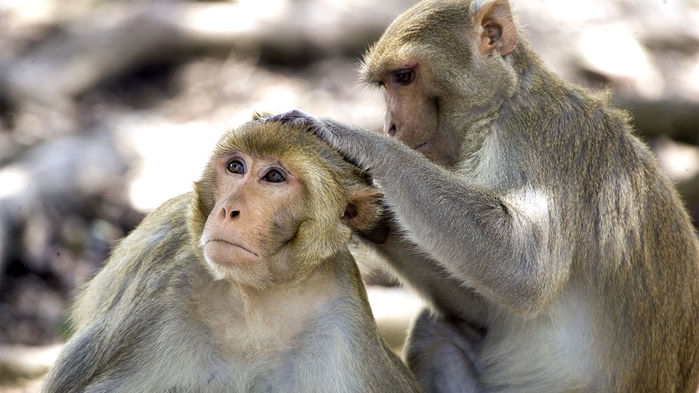
14/03/20 Monkeys Develop Protective Antibodies to SARS-CoV-2
A small study of macaques finds they don’t develop a coronavirus infection the second time they are exposed, supporting the idea of using plasma from recovered patients as a treatment for COVID-19.
Three rhesus macaques did not develop a second infection after recovering from a first exposure to the coronavirus and being reexposed to SARS-CoV-2, suggesting that primates are capable of developing at least some short-term immunity to the pathogen. The research, posted as a preprint to bioRxiv March 14, has yet to undergo peer review. To the authors, the results indicate that reports of some COVID-19 survivors being “re-infected” a second time can be explained by issues with testing rather than a failure to develop immunity.
https://www.the-scientist.com/news-opinion/monkeys-develop-protective-antibodies-to-sars-cov-2-67281
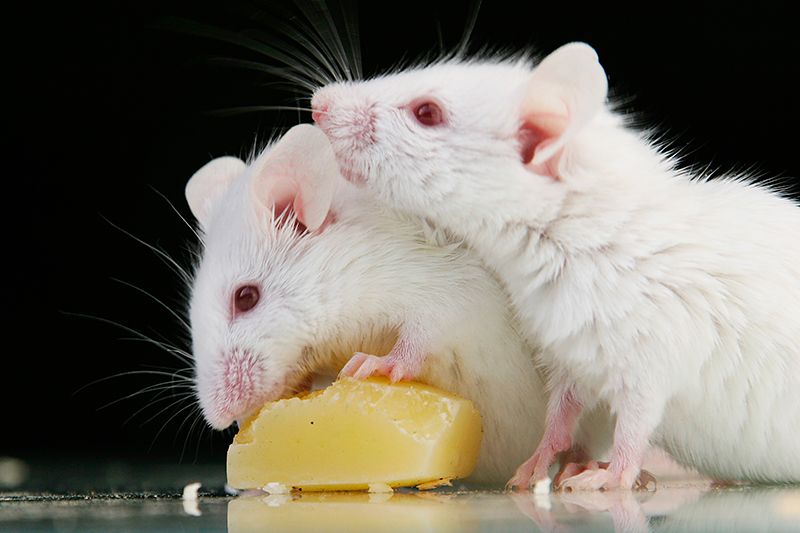
14/03/19 These Lab Animals Will Help Fight Coronavirus
There are different animals at each end of the pandemic, of course. The new disease almost certainly began with a bat virus, scientists agree. That virus probably passed through another animal, perhaps pangolins, on its way to humans.
But the animals that scientists will depend on in the lab are mice, first of all, and then perhaps ferrets or hamsters or monkeys. Around the world, different laboratories are racing to breed stocks of mice genetically engineered for research and testing the susceptibility of other animals to infection with the virus that causes Covid-19.
https://www.nytimes.com/2020/03/14/science/animals-coronavirus-vaccine.html
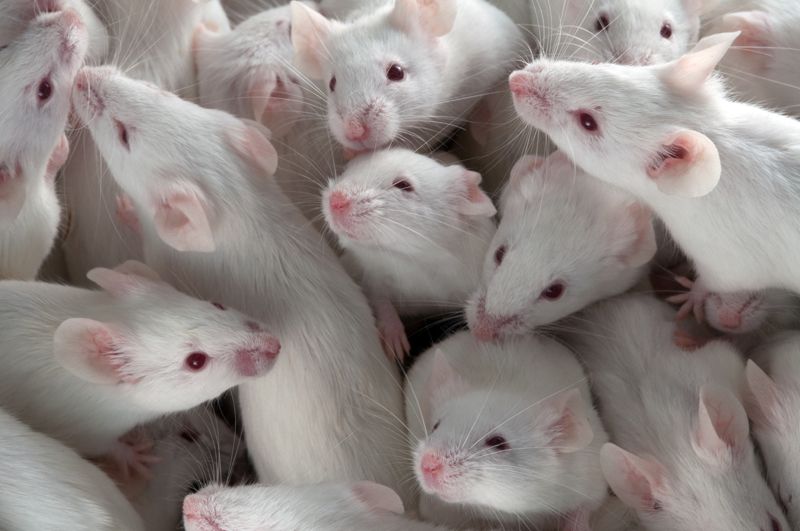
11/03/19 As pressure for coronavirus vaccine mounts, scientists debate risks of accelerated testing
Studies have suggested that coronavirus vaccines carry the risk of what is known as vaccine enhancement, where instead of protecting against infection, the vaccine can actually make the disease worse when a vaccinated person is infected with the virus. The mechanism that causes that risk is not fully understood and is one of the stumbling blocks that has prevented the successful development of a coronavirus vaccine.
Normally, researchers would take months to test for the possibility of vaccine enhancement in animals. Given the urgency to stem the spread of the new coronavirus, some drugmakers are moving straight into small-scale human tests, without waiting for the completion of such animal tests.
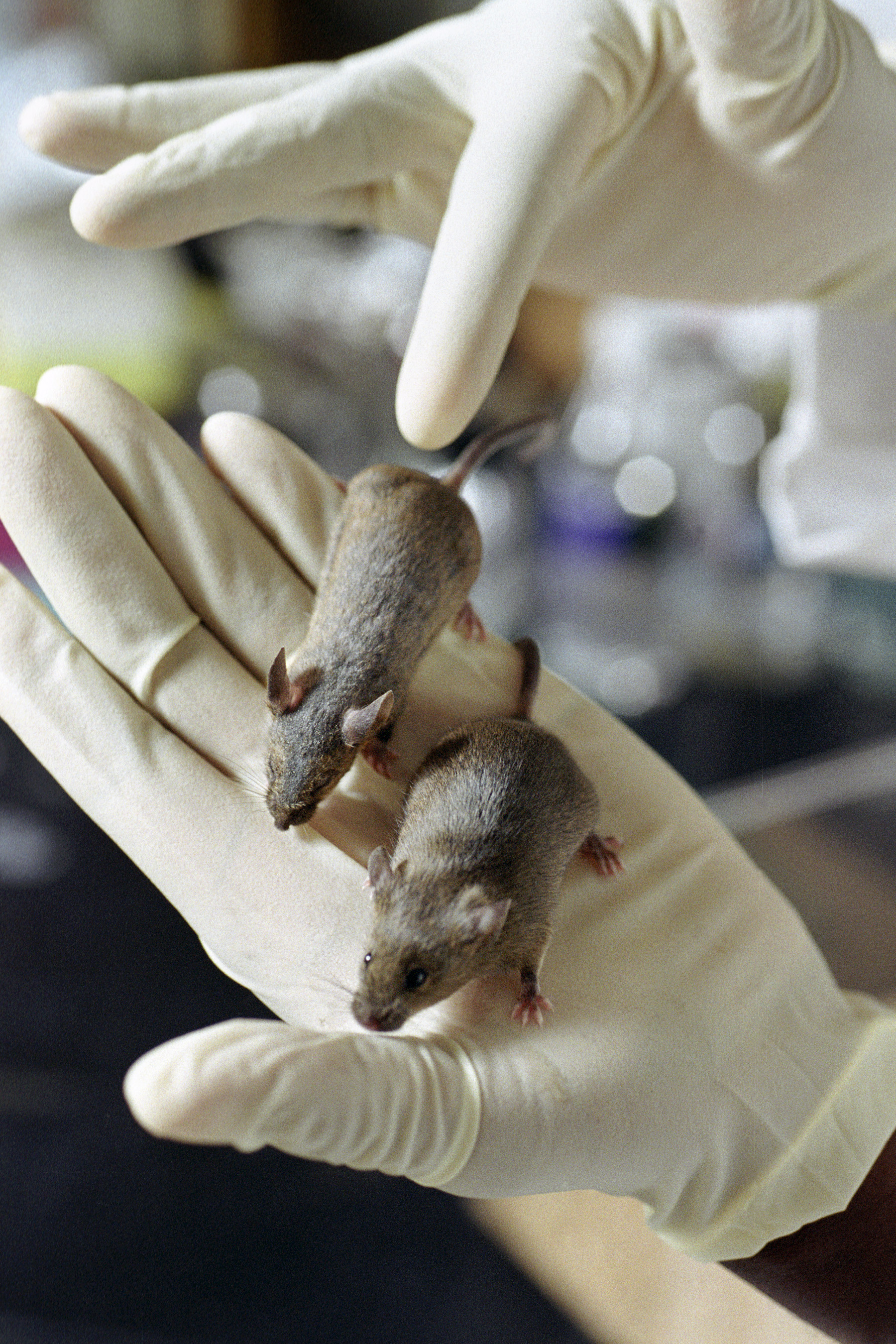
11/03/20 Researchers rush to test coronavirus vaccine in people without knowing how well it works in animals
As they race to test an experimental coronavirus vaccine, researchers aren’t waiting to see how well it prevents infection in animals before trying it in people, breaking from the usual protocol.
Last edited: 15 June 2020 09:33
